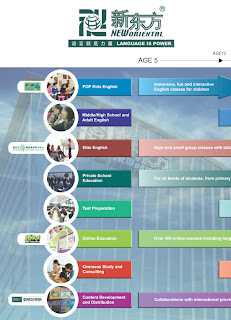Requirement: What Professional Development happens in your workplace? What strategies does your organisation have in place to encourage development, change and innovation?
Professional
development (PD) refers to any organizations’ arranged paths for employees to improve
their skills to adapt to changes. According to ERIC database, “professional
development for teachers” has more specification than the general definition of
PD:
"PD for teachers refers to “activity to
enhance professional career growth”. Such activities may include individual
development, continuing education, and in-service education, as well as
curriculum writing, peer collaboration, study groups, and peer coaching or
mentoring."
PD is important to
most organizations for human resources (HR) are one of their most valuable
assets, and PD can help them cultivate and improve the quality of their HR.
